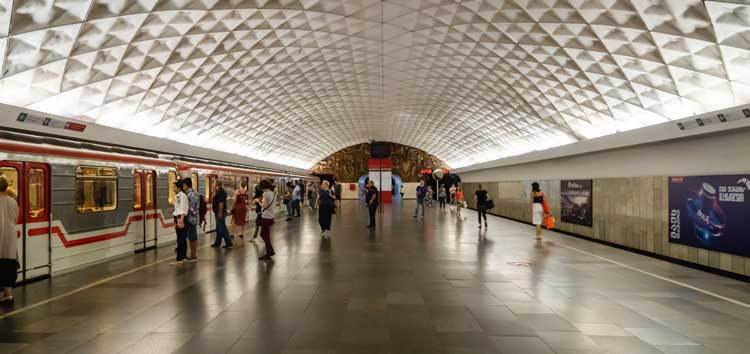EBRD finances €75m for modernisation of Tbilisi metro in Georgia
Residents of Georgia’s capital Tbilisi will benefit from a €75 million sovereign loan, with €65 million provided by the EBRD and €10 million by the Green Climate Fund (GCF), for the modernisation of the metro network, its main form of public transport, and the provision of new rolling stock.
Supporting vital infrastructure is a key element of the EBRD’s response to the coronavirus pandemic, while the Bank also continues to prioritise green and sustainable investment.
The funds, extended to Georgia and on-lent to the city of Tbilisi for the benefit of the Tbilisi Transport Company, will finance the acquisition of 40 modern metro cars as well as the modernisation of a depot and a tunnel.
The investment is part of EBRD Green Cities and a follow-on investment under Tbilisi’s Green City Action Plan (GCAP), which identifies areas for urgent action addressing the city’s main environmental challenges, one of which is air quality. It is also the first project to be co-financed by the GCF under EBRD Green Cities.
The metro upgrade and new rolling stock will improve the reliability, safety and efficiency of public transport and provide commuters with a comfortable and environmentally friendly means of transport. Tbilisi has almost 1.2 million inhabitants and becomes very congested during peak hours. The updated metro will encourage residents to shift from private to public transport, reducing air pollution.
The project also aims to promote gender equality and improve health and safety standards. It will include on-the-job training opportunities promoting the employment of women and addressing equal opportunities in the urban transport sector.
The EBRD has launched a Vital Infrastructure Support Programme as part of its response to the coronavirus pandemic to guarantee the operation and development of crucial infrastructure supplies and services. Infrastructure investments are vital for the local economy and create or secure jobs.
“The European Bank for Reconstruction and Development is one of the leading institutions providing financial assistance to Georgia in the fight against Covid-19. The new financial resources allocated by our partners will be used for one of the most important priorities – municipal transport, including the rehabilitation of the Tbilisi subway, as well as the purchase of a new type of modern carriages, necessary steps to ensure the safe movement of our citizens. I would like to thank the management of the Bank and the head of its regional office, Ms. Catarina Bjorlin Hansen, for the close cooperation and the assistance provided to Georgia. In the context of the Covid-19 pandemic this support is of great importance for the development of our country”, said Ivane Matchavariani, Minister of Finance of Georgia.
“The EBRD has been supporting Tbilisi’s municipal transport infrastructure for several years now. We are grateful that despite the difficult economic conditions caused by the Covid-19 pandemic, the Bank’s support for Georgia’s economy and its citizens remains strong. We are much obliged to the EBRD team in Georgia and stand ready to continue our future cooperation”, added Kakha Kaladze, the Mayor of Tbilisi.

Catarina Bjorlin Hansen, EBRD Director for the Caucasus, said: “In this time of unprecedented challenges the EBRD is standing by its countries of operations and by its clients and is ready to offer vital support. Infrastructure plays a critical role in providing the services we need for our daily lives and for the functioning of the economy. The modernisation of the Tbilisi metro will be a milestone in addressing the city’s key environmental challenges. The demand for quality public transport is high and such projects have an excellent environmental and social impact.”
The EBRD is a leading institutional investor in Georgia. Since the start of its operations in the country, the Bank has invested over €3.7 billion in 249 projects in the financial, corporate, infrastructure and energy sectors, with 87 percent of these investments in the private sector.





























